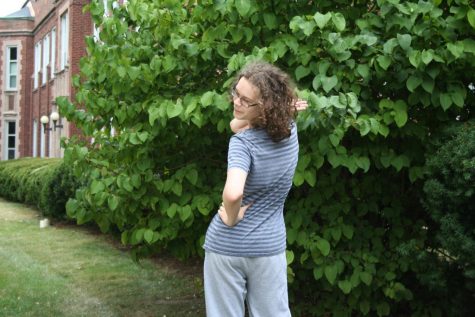RBHS board discusses budget, field trips
September 20, 2017
On September 12, 2017, the Riverside Brookfield High School Board of Education had a public hearing in room 201. Among other items on the agenda for the meeting, the tentative budget for 2017-2018 school year, the district plan for allocation of Title I funds, and six educational field trips were approved. There was also a brief report on the district goals for graduation and matriculation.
The 2017-2018 tentative budget was approved in July, and was adjusted in August to address revenue and expenditure line items. The Board of Education received an update from the State Board of Education but it will take a few months to figure out what each school’s funding will be under new funding laws and parameters.
“We don’t have a final number on that but we’ve received what they call a fiscal year minimum and that was up by $52,000 from what we were originally projected to budget,” superintendent Kevin Skinkis said.
There was one error in the subtotal for the athletics office budget (dues and fees) on the budget spreadsheet. This impacted the final budget by $34,000.
“The deficit did not go down by $52,000 because there was a small calculation error,” Chief Financial Officer Scott Beranek said. “The deficit decreased an additional $18,000 from what we presented in August to the Board of Education.”
The net impact on the budget with the accounting error and minimum general state aid calculation will lower the deficit to approximately $18,000.
Director of Student Services Beth Augustine gave the report on the district’s graduation and matriculation goals. The graduation rate for the class of 2018 is projected to be 95.8 percent.
A credit deficient watch-list for the class of 2018 has been created and will be monitored by the counselors. Those on the watch-list are currently enrolled in credit recovery courses for at least one period of the day.
Counselor interns have been facilitating a transfer student group to assist with the students’ transition and to monitor their academic progress. Transfer students are considered an at-risk group because they will sometimes come to RB already credit deficient.
“We try to come up with a plan that they [transfer students] feel that they can be successful here and give them some courage and hope that they can walk out with a diploma on time, hopefully,” Augustine said.
Seniors who do not graduate on time can take classes over the summer to recover credits and receive their diploma. Last summer, English, math, and science courses were offered to the class of 2020 and 2021 to preemptively counteract graduation issues.
To improve the matriculation rate, at-risk students take an annual trip to Triton College during first semester to experience a college campus. College camps are offered over the summer and counselors have meetings with a first-generation college student group.
“I think for some of the students that are at-risk, you can’t communicate too much. We really need to make sure parents are on board and we’re working as a team to get our students through and graduated on time,” Augustine said.
Financial aid speakers frequently visit RB and give presentations to parents and students. Kylie Lindquist, Assistant Principal for Curriculum and Instruction, and Augustine are also working on a career committee.
All six educational field trips requested were approved. Model UN and Speech Team will each be going on overnight trips in Illinois. Ski Club will be going on three overnight trips, visiting locations in Illinois once and Wisconsin twice.
The music department will be going on a tour of New York over spring break. The Girls Water Polo Team will be going to Florida for training and competition.
The District annually receives a Title I grant, federal money allocated for at-risk students with financial and academic needs in the learning environment. The final budget for Title I funds for the fiscal year of 2018 is $135,000.
This year, Title I money will go to academic support personnel, summer school salaries, the HERO tracking system, professional development, transportation of homeless students, a progress monitoring system, and diversity/anti-bullying training.





Madison Heninger • Sep 21, 2017 at 10:45 am
Outstanding work!